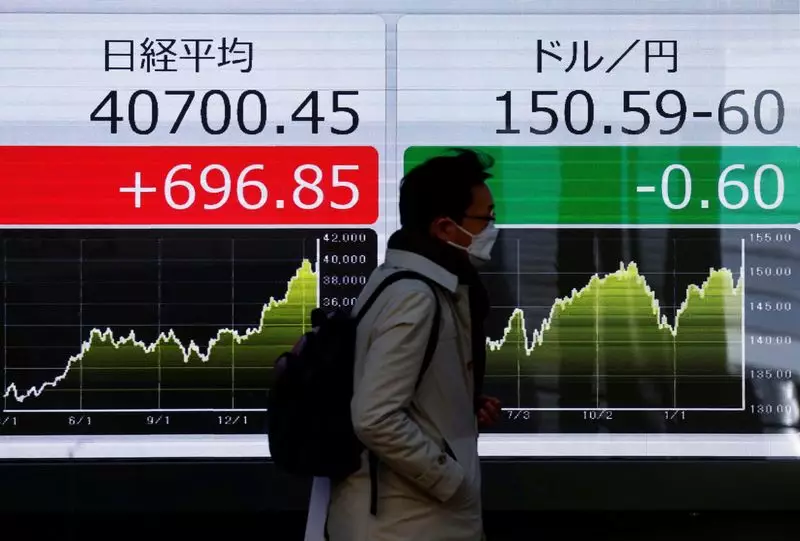The upcoming week in Asian markets is set to be filled with a plethora of top-tier local economic indicators and policy decisions. This comes after a surge in U.S. job growth figures that led to a significant increase on Wall Street. The Asian market is primed for an optimistic start with key events such as trade and current account figures from Japan, industrial production data from Malaysia, and a crucial interest rate decision in the Philippines.
The recent 2% slide in Japan’s Nikkei 225 index is a cause for concern as it experienced its largest weekly decline since December 2022. The market will closely monitor the exchange rate and potential yen-supportive intervention from Tokyo. Despite the spike in bond yields and a 4% weekly rise in oil prices, U.S. markets saw a rebound in risk appetite on Friday. Geopolitical tensions also play a role, with gold reaching a record high of $2,330 an ounce.
The question arises whether Wall Street’s positive momentum will carry over to Asian markets or if there will be a shift in investor sentiment. It appears that equities are in a consolidation phase at current highs rather than undergoing a mass profit-taking event. Major indexes like the S&P 500 and MSCI World experienced minor losses in the face of rising bond yields, signaling resilience in the market. The MSCI Asia ex-Japan index, which is sensitive to U.S. yield changes, maintained stability throughout the week.
Chinese Economic Data
China’s improving economic data is contributing to the overall positive sentiment in the Asian markets. Key indicators such as lending, trade, and inflation will be closely watched this week. U.S. Treasury Secretary Janet Yellen’s recent visit to China resulted in discussions about balanced economic growth and addressing concerns over excess manufacturing capacity. This dialogue indicates a more stable relationship between the two countries.
Philippine Policy Decision
The Philippine central bank is expected to maintain its key policy rate at 6.50% during its upcoming meeting. Inflation rose for the first time in five months in February, reaching 3.4%. The central bank remains cautious about potential risks to the economic outlook, indicating a reluctance to lower rates ahead of major global counterparts like the Federal Reserve. Economists are divided on the possibility of a rate cut in the coming months.
The outlook for Asian markets appears positive despite global economic uncertainties. Key economic indicators, policy decisions, and geopolitical developments will continue to influence market sentiment and performance in the week ahead. Investors should remain vigilant and adapt their strategies accordingly to navigate the evolving landscape of the financial markets.

